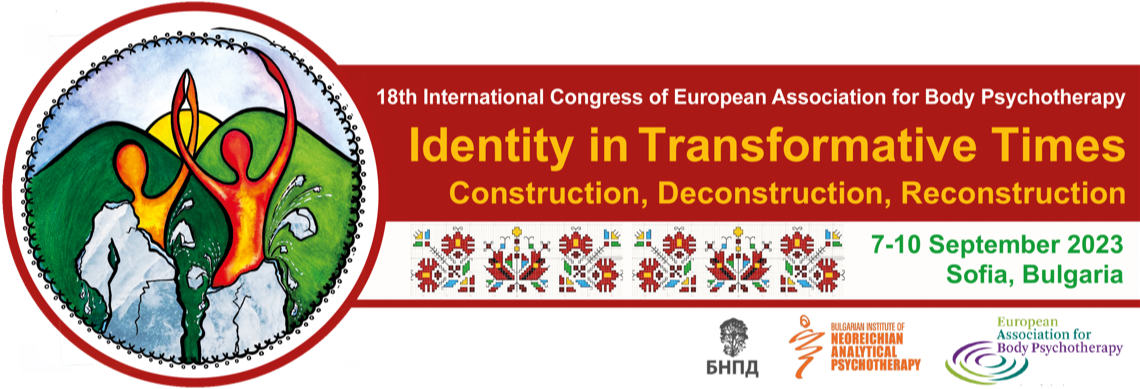Keynote Speakers
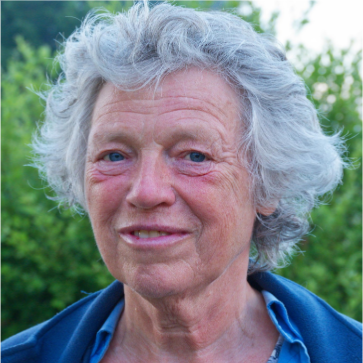
Merete Holm Brantbjerg is a psychomotor-trainer and co-creator of Bodynamic Analysis from 1985-2003. From 2003 till now, she has developed “Relational Trauma Therapy” together with Kolbjørn Vårdal combining psychomotor and neurocentric skill training and systems oriented group-work.
The goal of the approach is to establish systems in which mutual regulation of what has been held in dissociation can happen. Merete has specialised in developing methodology aimed at normalising, including and regulating hypo-states.
She leads trainings and workshops in Denmark, and internationally online. She lives in Copenhagen, Denmark.
Who am I when parts of me are missing?
Who am I – when parts of me are missing? The theme of this conference is identity. We all go through an identity construction process in our teens, and in addition to that, trauma impacts our identity throughout our lives. After every traumatic event we are left with a process of renegotiating our felt sense of who we are bodily and emotionally – and our cognition, our norms, our understanding of ourselves and life. Who am I when this has happened, when I reacted like I did, when others did what they did, when the world behaves like this? Said in the words of the title of the conference: We go through deconstruction and hopefully reconstruction of our identity. A particular aspect of how trauma impacts identity lies in how parts of us can disappear, can lose energy, consciousness, visibility. That is the focus of this presentation. We can give up, collapse, dissociate – functional strategies within situations of overwhelming or just stressful impact - or afterwards if mutual regulation isn’t available to us. These are hypo-strategies where energy is given up in muscles (hypo-response), the autonomic nervous-system is going into collapse (hypo-arousal) or negative dissociative symptoms show up as numbness and memory-loss.Hypo-strategies are part of our survival- and coping-strategies. They help us survive and cope with what we cannot bear to feel – in smaller or bigger degrees. And they leave us with often invisible challenges in relation to our sense of who we are. Something has gone lost – we may not know what it is, we cannot feel it – we may just know that something feels off or wrong. And this may easily invite us into self-blame – “something must be wrong with me.” How can we work with these identity-aspects of trauma and stress that are held in hypo-strategies - stories or parts of stories that can be partially or fully forgotten? How do we support an inclusion of what we don’t feel, what we withdraw from, what we don’t know about our history? In this presentation I will share aspects from a client-case – focusing on bodily, relational and cognitive aspects of the identity-process embedded in a trauma-therapeutic process. I will also share aspects from my own history that have provided both necessity and inspiration for exploring what works in terms of including parts that have gone missing. And I will invite the listeners into exploration of their own missing parts in the here and now during the presentation. Which parts of us go into hypo-response when listening to a presentation?
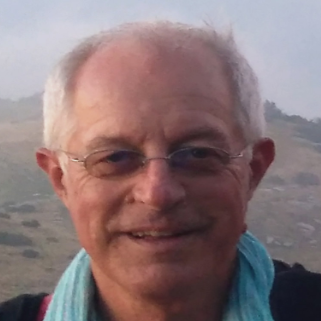
Tom Warnecke, PgDip, ECP, is the Deputy General Secretary of the European Association for Psychotherapy (EAP), a co-editor for the ‘Body, Movement and Dance in Psychotherapy’ journal, and a past UKCP Vice Chair. He is trained in Gestalt Therapy and works internationally as tutor, lecturer and facilitator for various training programs in the field of psychotherapy and supervision.
He developed a relational-somatic approach to Borderline Trauma and is the author of 'The Psyche in the Modern World - Psychotherapy and Society' (Karnac, 2015). He has also written and published a number of book chapters and journal articles. His writing is grounded in psychophysiological and psychodynamic perspectives and he is particularly interested in the challenging aspects of psychotherapy such as Eros, complex conditions, or ethical and socio-political discourse.
Cultural self(s) and their psychophysiological presentations in the consulting room
Culture and diversity, associated psychophysiological states or distress, commonly remain unseen in the therapeutic endeavor to the detriment of client's psychotherapeutic process. This calamity is well recognized by Psychotherapy associations and institutes and the lack of significant progress is therefore puzzling. Some indications appear to suggest that cultural and diversity dynamics in the consulting room, may challenge our psychophysiology more powerfully than Eros or sexuality. In parallel, the field of body psychotherapy has shown little engagement with `multiple self(s)' conceptions. Such ideas appear relevant to the body psychotherapy since `multiple self(s)' may contribute to psychophysiological self-organization and might be a key asset in the construction of identity. Inevitably, cultural and diversity dynamics present themselves, not only psychologically, but also as somatic phenomena. This presentation aims to utilize somatic, relational, and `multiple self(s)' perspectives in order to deconstruct and reconstruct, the puzzle of culture and different dynamics in the therapeutic relationship.

Prof. Maurizio Stupiggia, PhD, Department of Clinical Sciences – Faculty of Medicine and Surgery, University of Milano.Body-psychotherapist.
He has been working for many years as a Body-Psychotherapist, with individuals and groups. He worked for several years for Italian Ministry of Health, in assisting the integration of immigrants. For the last 10 years he has worked as a supervisor for therapists and educators who are responsible for immigrant women from Africa who are victims of the various traumatic abuses in the wars.
He is the founder, with Jerome Liss, of the International School of Biosystemic.
New forms of existence emerging from complexity: social interaction and neurobiology
Times are rapidly changing, new living conditions are emerging, bringing with them new possible forms of disease and simultaneously new possibilities for existence.
We are witnessing “revolutions” that have follow one after the other: first, a very strong, tremendous acceleration that has exponentially destabilized the social interactions; then an unpredictable reduction in physical proximity and body contact, due to the Pandemic; and now, the war with its catastrophic risk of dissolution of both, the external and internal worlds.
Dissociation becomes a possible resource for survival so far, as there is no more “safe place" left for us. In our body, we collapse in a confused and chaotic experience, where dissociation itself, produces a rigid repetition of forms of behavior.
But the risk of Dissociation also brings the possibility for transformation: new parts of the self can emerge and produce new forms of existence, individual and social. Identity becomes a dialogue with the otherness.
We are a dialogue: of the person with oneself, and with other persons. Mental disorder is the interruption of this dialogue, through which we otherwise maintain our personal identity and our position in the world. The crisis of the dialogue of the person with the alterity that inhabits him/her along with the alterity, embodied in the other persons, is at the heart of mental disorders. Maintaining and encouraging this dialogue can create a true human revolution and represent the true post-traumatic growth.

Milena Georgieva is an Associate Professor in Molecular Biology. Her research interests are in Molecular Biology and Genetics, Epigenetics, and modern Biomedicine. She co-authors over 100 scientific publications in peer-reviewed international journals. Milena is a leader and participant in a number of research projects. She is a research consultant at the international Enago academy, which aims to support scientists from around the world with advice on academic development. Milena has specializations in Genetics and Epigenetics at the Curie Institute and the University of Strasbourg, France. Milena has specialized in the Biology of Aging at the International Research Centre for Bioengineering in Trieste, Italy. She is a regular guest speaker at international and national scientific meetings. She is a member of the Union of Scientists in Bulgaria, the European Federation of Biochemical Societies, and the International Union of Clinical Epigenetics.
She is also an honorary member of the Advisory Board of M3 Communications Group, Inc. Milena is a zealous communicator of science, and a guest lecturer at numerous festivals and scientific events, radio, and TV shows. She is a speaker at the TED platform.
The hidden pandemics of modern times
Modern times in human history have made good health the most valuable treasure ever. At present, there is a visible tendency of worsening human health, globally. There is a high incidence of socially significant chronic diseases, like cardiovascular illnesses, diabetes, mental disorders of all types, cancer and lung diseases, designated also as noncommunicable diseases (NCDs) or the “Hidden pandemics”. These conditions kill 41 million people each year and are equivalent to 71% of all deaths globally. It is expected by 2030, the annual deaths from NCDs will escalate to 52 million. The concurrence of COVID-19 with these illnesses, resulted in the unforeseen COVID-19 high death rates, especially among people diagnosed with them as comorbidities. The lessons that we had to learn after an unexpected pandemic like COVID-19 came unexpected and abrupt. We were unprepared, shocked and stressed. This damaged not only the health of our bodies but also that of our souls. The implications will long linger among humans and many of us, mainly our children, will witness them.
And yes, this is sad indeed, as we, as humans, have always believed that we are invincible. We develop modern technological and scientific breakthroughs. We design precise treatments, we travel in space. Regrettably, fundamental problems like the worsening of human health continue to escalate.
Therefore, in the current talk, we shall highlight the most promising and smart strategies for conferring these socially significant diseases and how body psychotherapy could deal with them. We shall develop and communicate intelligent, science-based strategies for “construction, deconstruction, reconstruction” of the human body and soul. We shall define approaches for harm reduction with the main aim to provide a chance for people to withstand the danger of these hidden pandemics, that are psychogenic.

Rubens Kignel has a PhD from the University of Bologna, Italy. He is a psychotherapist, an international trainer for Biodynamic Psychology and Biosystemic and a guest teacher in University of São Paulo.
He teaches and trains his own methods in several different countries, including Brazil, Europe, Japan, South America and North America. Along with Maurizio Stupiggia he co-founded The Bio-Integral Institute of Body Psychotherapy in Tokyo.
What is the most important thing for human beings?
Very clearly, one can say that the most important thing for human being is: "the other". It is through the other that identity begins to form: the presence of the 5 senses and the body of the mother or whoever is there, while we grow up. The baby's identity is formed from the interaction with the other human, the other environment, the other nature, the other universe. Without these relations the identity suffers or, perhaps, is not formed at all. Therefore, identity is a social, political and existential quality. In this conference I will be sharing the consequences of the formation of identities at the psycho-corporal social level as well as the possible and the impossible transformations.
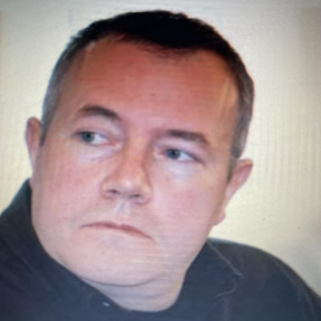
Haralan Alexandrov, PhD is a teacher at the New Bulgarian University as well as, a researcher and consultant in the Bulgarian Institute of Human Relations. He holds a Master’s degree in Bulgarian philology, a PhD in social anthropology and a second PhD in organizational studies from the Centre for Psycho-Social Studies, UWE Bristol. His academic interests are in the fields of education, social policy, organizational theory and leadership. He is involved in various community development and research projects, applying participatory approaches such as action research, reflective practice, cooperative inquiry, etc. He teaches courses in human relations, organizational relations, leadership and ethics, human development, social policy and community development.
The vicissitudes of identity in turbulent times
This presentation dwells on the findings of several psycho-social research projects, carried out in Bulgaria, in the context of Covid restrictions, political and social unrest, economic hardships, growing anxiety and uncertainty, regarding the future. In the focus of the research interest are the challenges faced by adolescents and young adults in the process of constructing and sustaining personal and group identity in turbulent economic, social and cultural environment. It looks into the strategies they apply to cope with these challenges, some of which are defensive, such as psychological and social withdrawal, various addictions, resorting to virtual identities, joining cults and radical movements, etc. Others however, are rather creative, such as investing in professional and personal development, reconsidering and enhancing meaningful relationships, rediscovering cultural heritage, embarking on self-exploration and spiritual journeys, etc.
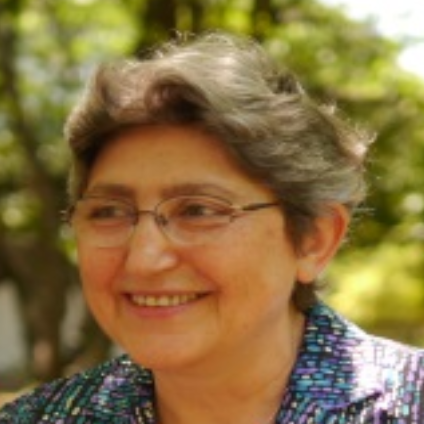
Dr. Roumiana Tsenkova is the head of the Aquaphotomics Research Department at Kobe University, Affiliated Professor at Keio University, Medical School, Japan and President of the International Aquaphotomics Society.
The founder of the Aquaphotomics Multidisciplinary Science and Technology Integrative Platform, she is currently working on development and dissemination of Aquaphotomics in various fields. Since April 2021, she is the Head of the newly established Aquaphotomics Research Department at the Graduate School of Agricultural Science, Kobe University, Japan.
Aquaphotomics: Water – Light Interaction for Better Understanding of Life
Aquaphotomics is a new Science and Technology Integrative Platform presented in 2005. The principal novelty of this field is placing the focus on water as a complimentary to other molecules in biological or aqueous systems. Water is sensitive to any change the system experiences – external or internal. It is an integrative sensor, a collective mirror. The molecular structure of water, revealed through its interaction with light as a multidimensional spectral pattern of all frequencies, becomes a source of information about the state of the system. As the water spectral pattern in the NIR region can be measured and monitored non-invasively, it opens up a huge opportunity to be used as a multidimensional biomarker for various purposes of bio measurements, bio monitoring and bio diagnostics.
The Water molecular system in the body resembles a quantum computer. Knowledge and information about water will lead us to understand why making small changes is the key to good adaptability. Why water molecular structure is highly related to our health, aging etc. We might be able to diagnose and understand our psychosomatic connections, observe how water reacts to our conditions, and answer various unanswered questions, through the prism of the “water – light” interaction.
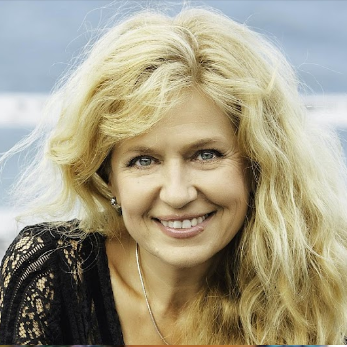
Chair of the 18th International Congress of the EABP.
Madlen Algafari is a psychologist, psychotherapist, writer and theater director. MA in psychology from University of Sofia 'St. Clement Ohridski' in 1991, postgraduate specialization in Neo-reichian analytical psychotherapy in 1998, Lugano, Switzerland. A prolific writer, she is the author of 13 best-selling books and was the editor in chief of International Body Psychotherapy Journal from 2018 to 2022. She is a member of the Bulgarian Academy of Sciences,;The Bulgarian Association of Psychotherapy, European Association of Body psychotherapy, an honorary member of the United States Association for Body Psychotherapy and a member of the board of directors of the Bulgarian Institute for Neo-reichian Analytical Body Psychotherapy.
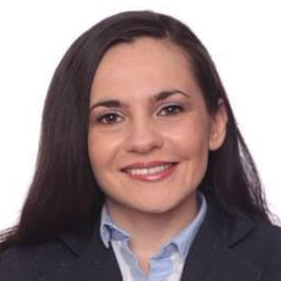
Dr. Mariana Todorova is a futurist and researcher in the field of future studies and strategic planning. She is also a visionary, strategist, consultant and author of books. She completed an Executive Program in Political leadership at Harvard University, John F. Kennedy School of Government as well as the International Visitors Leadership Program (IVLP) at the US State Department and Executive Program in Political leadership at the Chinese Academy of Governance.
She has served as a Member of Parliament, advisor to the President of the Republic of Bulgaria and Professor at the Bulgarian Academy of Sciences. She was also a member of UNESCO Intergovernmental Special Committee for Elaboration of Recommendation on The Ethics of Artificial Intelligence and is part of Ad-Hoc Working Group on Foresight on Emerging and Future Cybersecurity Challenges connected with (AI) at European Cyber Security Agency (ENISA).
In 2019 she co-authored a book: “Future Studies and Counterfactual Analysis. Seeds of the Future” together Theodore Gordon. In 2020, she issued her second book in Bulgarian: “Artificial Intelligence. A Brief History of Development and Ethical Aspects”.
Todorova also elaborated a Blockchain based platform for introducing liquid democracy.
The (New) Human Identity in the Context of Digitalization, Robotics, Artificial Intelligence and the New Geopolitical Reality
A conversation between Madlen Algafari and Assoc. Prof. Dr. Mariana Todorova
In the mid-term and distant future, human identity will increasingly be built around new concepts of "digitalization", "digital twins" and "artificial intelligence". This will happen through the transformation of medicine and the power of synthetic biology, gained from the synergy between new technologies that will directly influence and change humans in the direction of the ideas of transhumanism. Another major path will be through the intentional or unintentional creation and (self) construction of new digital identities.
In contrast to this phenomenon of technological absolutism, as a counteract, there will be more and more waves of neo-conservatism, which will try to reconstruct the Man from pre-modern or postmodern societies. All these versions of identity will be simultaneous and valid.
